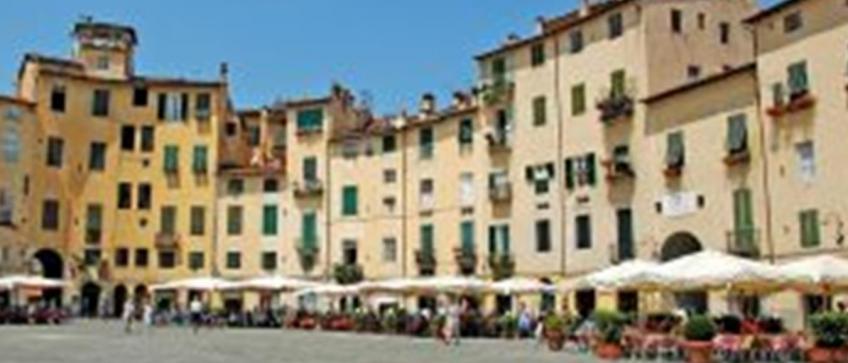Call us now: +5999 6637989
100 Best Things to do in Italy 23 / 32

It is difficult – if not impossible – to limit a list of things to do in Italy to 100, and even more difficult to put them in order of descending significance or entertainment value: home to Phoenicians, Carthaginians, Etruscans, Greeks and Romans, with islands as diverse as dour Sicily and African-influenced Pantelleria and cultures as far apart as Renaissance Venice and the prehistoric Trulli in Alberobello, Italy is a vibrant and colorful hotch-potch, a land of stark and passionately defended contrasts.
Let’s continue the count…
70. Lucca (Pisa)
Around 20 km northwest of Pisa lies the enchanting town of Lucca, one of the most picturesque and colorful towns in Tuscany with a history going back to the Etruscans. Known as the “City of 100 churches”, and with a series of perfectly intact Renaissance city walls, Lucca presents a marked contrast to the city of Pisa and is a wonderful place to relax, soak up the atmosphere and have a bite to eat!
Both trains (39 minutes) and buses (around 80 minutes) run regularly from Pisa to Lucca.
71. Galata Museo del Mare (Genoa)
The largest maritime museum in the Mediterranean, Genoa`s “Galato Museo del Mare” opened in 2004 and became an immediate success with visitors to the city. The museum displays over 6.000 historical artefacts concerned with man`s relationship to the sea, going right back to Christopher Columbus who was born in Genoa and including a lifesize replica of a 17th century galleon.
A fascinating day trip for those visiting Genoa, the Galata Museo del Mare is 8 minutes on foot from the Piazza Principe railway station.
72. Orto Botanico (Padua)
The botanical gardens in Padua, founded in 1545, are the oldest botanical gardens in the world still to be found in their original location. On a total of 22.000 square metres of land, this forefather of all botanical gardens was originally given over to the cultivation of medicinal plants for educational purposes, with profound influence on the study of chemistry, botany, medicine and pharmacy. Still in use today for purposes of education and research, the botanical gardens – closely affiliated with the University of Padua – play an important role in the protection of endangered species.
The botanical gardens are accessible in 11 minutes from Padua`s main railway station (exit: Businello fr 5).
Source: https://www.jenreviews.com/
- Log in to post comments
